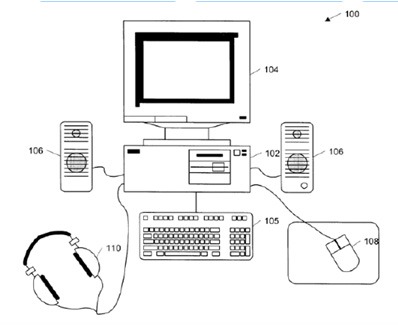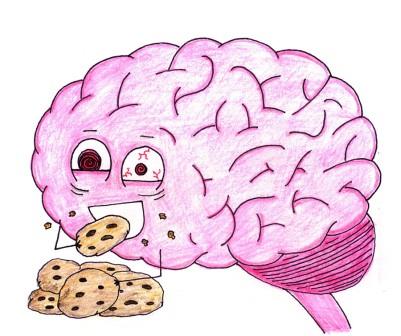Posts Tagged ‘computer-game’
Method for adaptive training of short term memory and auditory/visual discrimination within a computer game: Key Neurotech Patent #13
Today we are sharing a 2003 cognitive training patent assigned to Scientific Learning Corp. U.S. Patent No. 6,599,129: Method for adaptive training of short term memory and auditory/visual discrimination within a computer game Assignee(s): Scientific Learning Corp. Inventor(s): William M. Jenkins, Michael M. Merzenich, Steven L. Miller, Bret E. Peterson, Paula Tallal Technology Category: NeuroCognitive Training Issue Date:…
Read MoreStudy: Brain training game helps resist unhealthy snack foods
. Online game ‘may control snacking’ (BBC News): “A computer game may help some people control their unhealthy snacking habits, suggests a small study from the University of Exeter. The online game, developed by psychologists at the University of Exeter and Cardiff University, used “brain training” techniques to change behaviour — in this case, to resist…
Read MoreCan Brain Training and Biofeedback Help Prevent Depression
In two innovative pilot studies, Ian Gotlib and his colleagues at Stanford University, California, showed that brain training can be used to help eliminate depression, even before it starts. They studied young girls (10 to 14 year old) whose mothers were depressed and who thus were at higher risk of developing depression themselves later-on. The girls…
Read MoreNintendo Brain Training and Math in UK Schools
Computer game boosts maths scores (BBC): — “It also found improvements in pupils’ concentration and behaviour.” — “The study involved more than 600 pupils in 32 schools across Scotland using the Brain Training from Dr Kawashima game on the Nintendo DS every day.” — “Researchers found that while all groups had improved their scores, the group…
Read MoreBrain and Mind News and Articles
Here you have a collection of recent news coverage on brain heath, fitness and training topics: 1- Great Memory Special in National Geographic, including — Interactive 3D map of the brain — Memory Game 2- Fascinating What the Beatles Gave Science, by Sharon Begley at Newsweek — “Even in novices, meditation leaves its mark. An eight-week course…
Read MoreCognitive Neuroscience @ MIT OpenCourseWare
The great MIT OpenCourseWare initiative offers a lot of free materials on Brain and Cognitive Sciences. You can browse lecture notes, readings, and more on a variety of psychology and neuroscience courses. “The human brain is the most complex, sophisticated, and powerful information-processing device known. To study its complexities, the Department of Brain and Cognitive…
Read More


